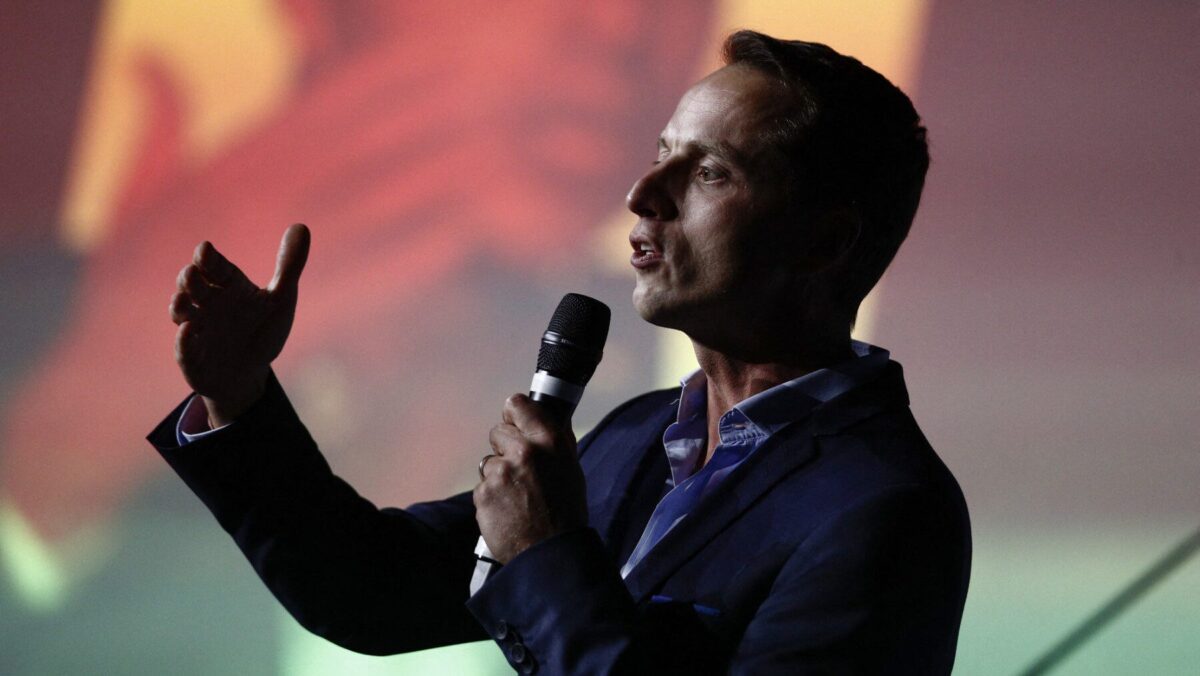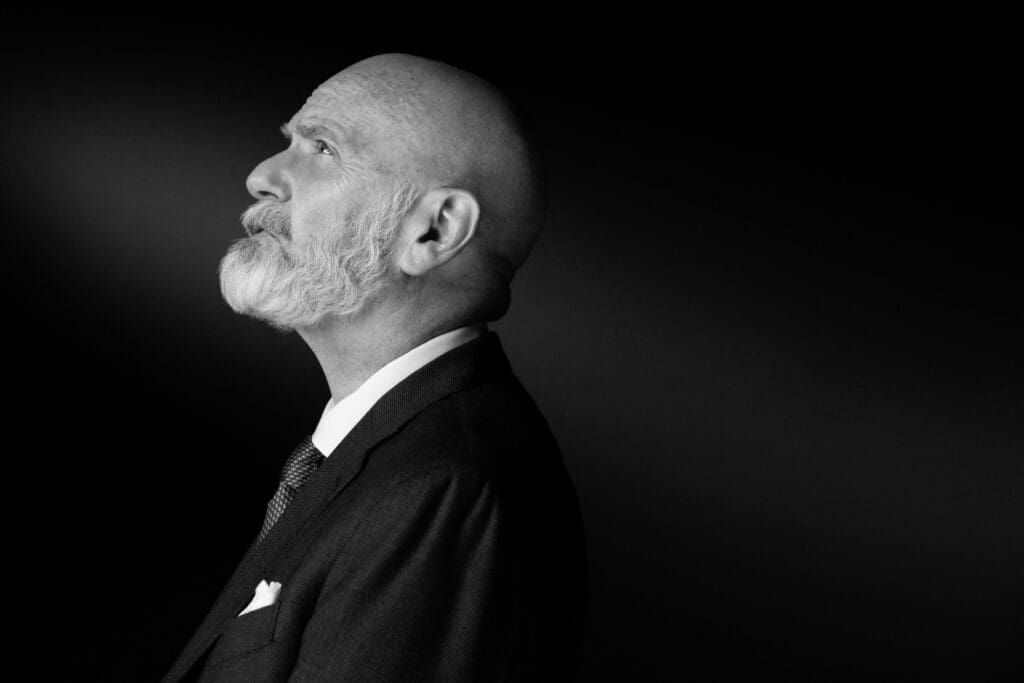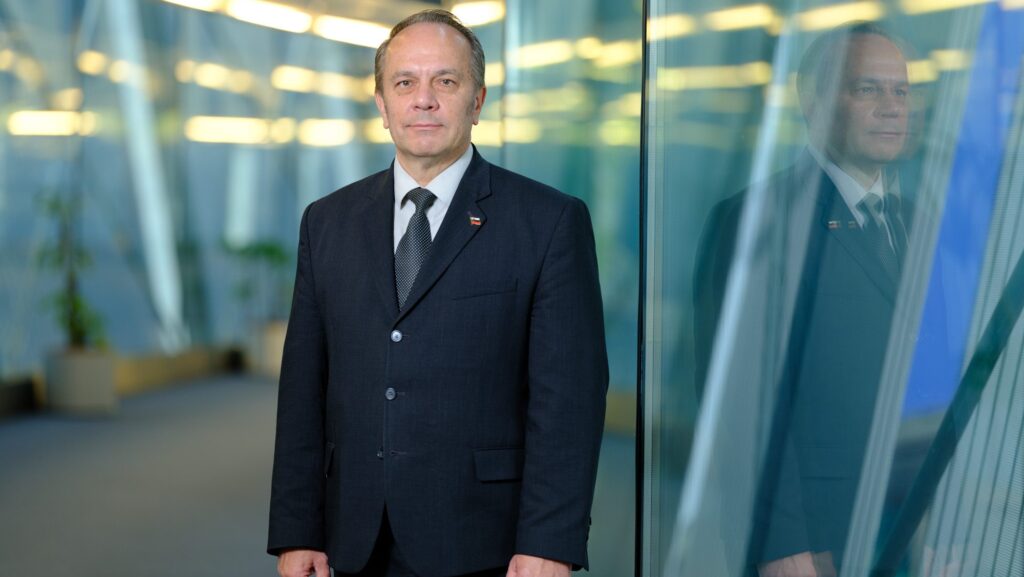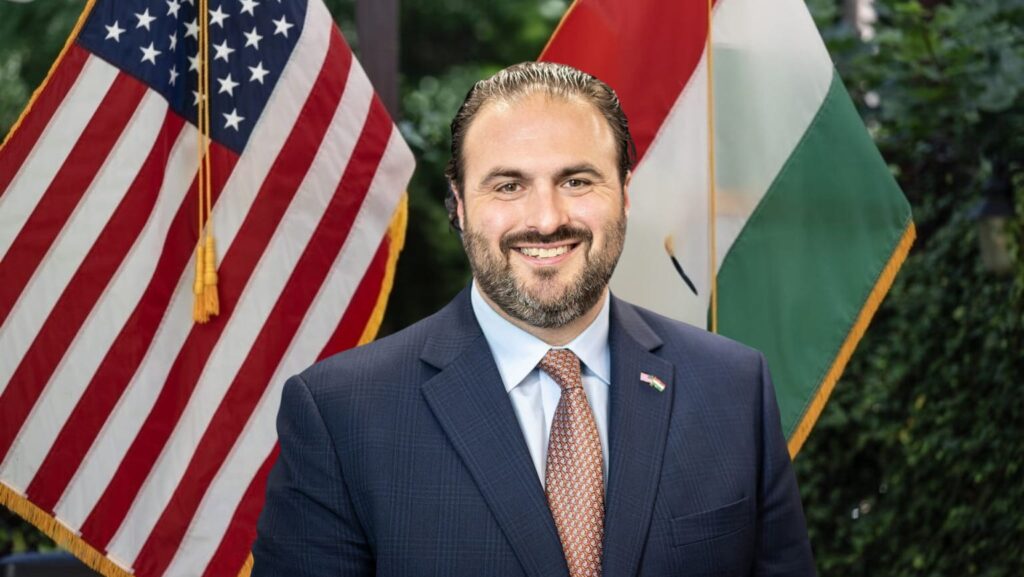The Institut de Formation Politique (IFP), founded in 2004 by three young Frenchmen with the aim of providing a training programme for young French conservatives, is celebrating its 20th anniversary this year. Alexandre Pesey, one of its founders, spoke with The European Conservative.
20 years ago, in 2004, President Jacques Chirac was in his second term of office, elected on April 21st, 2002 against Jean-Marie Le Pen. Against this backdrop, what triggered your decision to found the Institut de Formation Politique?
That’s a very good question. In 20 years, nobody has ever established a link between the creation of the IFP and Jacques Chirac. And yet we can’t understand the creation of all the associations that were set up in those years without this political context.
The creation of the IFP can be explained by three shocks and four encounters.
The first shock was brought by Jacques Chirac. After one term with this man as our president, we realised that having the ‘Right’ in power and winning elections was not enough. An electoral victory does not mean that you actually have power. It doesn’t mean that we’ve turned the tide. This was the first political shock.
The second shock was an intellectual one. Through my Ph.D. supervisor, who worked on [the Italian Marxist philosopher and politician] Antonio Gramsci, I discovered Gramsci, the culture war, and I understood that the Left had a metapolitical vision and that its commitment was not just electoral, but also cultural, journalistic, judicial, etc. It was a very powerful lesson.
The third shock was the culture shock of my trip to the United States, where I discovered that the United States was not just Hollywood and New York. I discovered that the American conservative movement was extremely structured and organised and had been so since Goldwater’s defeat in 1964.
These three elements served as shocks to reorientate my commitment, which was initially essentially oriented toward elections. I moved towards a more metapolitical commitment: first with an experience in journalism, then in teaching.
Then there were four encounters that led to the birth of the IFP and helped the project to mature.
The first was the meeting of founding fathers of the American conservative movement—people like Morton Blackwell and a few others. I had the great honour to work with Morton Blackwell in person, who taught me many things that proved decisive in my future commitment.
Second, I met the two partners with whom we were going to found the IFP, Jean Martinez and Thomas Millon. Inspired by the United States, I had lots of ideas for projects; I wanted to set up a think-tank. I wrote a dissertation on the Heritage Foundation and I wanted to create a French equivalent. I also wanted to set up a media outlet like Fox News—because I was working for CNN at the time and it was at that time that Fox News started to overtake CNN. I thought that was what we needed in France. I also wanted to set up a training school. But you can’t do everything. Jean Martinez and Thomas Millon pushed me to take a stand. We chose the training school.
The third meeting was with the founding fathers of a certain form of French civil society, i.e., the first people to set up financially independent and politically independent associations, like Bernard Zimmern, who had set up IFRAP (Fondation pour la recherche sur les administrations et les politiques publiques) in 1985.
And then, of course, the fourth meeting was with my wife, who herself worked in the United States for the Leadership Institute, a training institute for conservatives. I’ve been working with her at IFP for twenty years.
What were the major stages in the founding and growth of the Institute?
The first stage was a psychological one. We had to counter the phrase that comes up all the time: ‘your thing won’t work.’ Your family tries to dissuade you: ‘you’re preparing your PhD, you’re going to get tenure at university, and so on. First become a civil servant, then you’ll be safe and you can do something else.’ The same applies to the funding system. ‘Private funding is an American thing. Direct marketing won’t work in France.’ Speakers will never agree to come back on a voluntary basis at the weekend, you’re just dreaming. Students won’t agree to come back for a whole weekend in addition to their university training. You should do what everyone else is doing and set up a summer university. In the end, we met this psychological challenge, and we’re very happy that it worked.
The second challenge was to overcome anonymity. We were approximately in the years 2004-2012. We were unknowns, and we had created a completely unknown institute. So we had to go out and find students one after the other. There were no social networks, no Internet. In 2012, we passed the 100-student mark for applicants per year, retaining 64. We had a network of 80 trainers and a few hundred donors.
Between 2012 and 2015, we entered a third phase, which was the quantitative take-off with the ‘Manif Pour Tous’ effect (after the name of the large-scale movement against gay marriage).
We went from 100 candidates to 300 in one year. We thought it wouldn’t last, but the trend has never been reversed. The Manif Pour Tous marked the return of Catholics to politics in France, who had almost completely deserted the political arena. We saw a new wave of organisation in civil society. Just as there was the 2003-2004 wave, there was the 2012-2014 wave.
The fourth moment I have identified covers roughly 2015 to 2018. In 2015 we moved into our own offices, with the help of the economist Charles Gave. This was a colossal change. Having our own premises gives us a foothold, a presence that makes the difference between those who do one project after another without any real goal and those who can really plan for the future. It meant we could have permanent staff, bring people in and organise meetings. This has radically changed our image.
The fifth moment is the boom, which I would put at 2020, under the dual effect of the COVID pandemic and the rise of wokism. It’s an explosive cocktail. At that point, many people decided that they needed alternative or parallel training to structures like Sciences Po and joined our seminars.
The boom meant that we were now taking on 200 new young people a year, then 500 in three years. We end up supporting 1,500 young people over the course of a year, including 500 new ones. We now have 420 trainers and 5,000 donors.
The turning points in your development are both Franco-French—the particular issue of the Manif Pour Tous—and international, such as COVID and wokism.
Indeed.
Training in activism is all very well. But to defend what exactly? Is there a more or less coherent ideological corpus among the young people who join the IFP? Aren’t the young people you work with just there because they want to take on the Left, but with a rather weak backbone?
The doctrinal corpus is a central question that has occupied us during the first five years of the IFP’s existence. Is it appropriate to establish a charter—a short text or a longer declaration—or should we remain flexible, being above all a platform? This is the option we have chosen.
We define ourselves as a platform where different schools of thought can coexist. We know that it’s going to be an illusion to reconcile the different intellectual currents on the French Right, even more so than in the United States or elsewhere, because we have reactionaries, conservatives, ‘liberals’ (in the French sense of the term), and Catholics.
We have everything. We have them all, and we want them all. We want all sensibilities, but also all forms of commitment. Every time we’ve tried to write something, we’ve had the feeling that we were being boxed in. So we deliberately chose to remain vague, and to define ourselves in the negative, by defining the enemy. Finding the enemy is what will ultimately enable us to make the seemingly impossible leap between liberals and Catholics or conservatives.
Our common struggle is a struggle to identify the enemy and to overcome the intellectual division between currents but also the partisan division. We have to fight against this very Gallic tendency to divide. Our central idea is to create a coalition. This coalition must come about through people spending time together at weekends in our seminars, rather than through intellectual ambition, which will always be complicated and the subject of endless debate.
And it has worked… Of course we know the division that can exist, for example, between the Reconquête party and the Rassemblement National. But people who have been through the IFP end up talking to each other.
Exactly. Our generation grew up in the 1990s, the heyday of left-wing morality. The Left dominated by blackmailing the Right. The Left denounced in the press “the dark networks of the Right and the far Right.” That’s why we wanted to create something that would develop outside the media radar. We’ve kept a very low profile for a very long time, with the idea of getting all the political families on the right to spend time together. And it worked quite well. We have managed to create a sort of de facto coalition.
Is there one fight that outweighs the others in terms of hierarchy and mobilisation? Which is more powerful?
If we take the negative definition, we are fighting against egalitarianism, relativism, state interventionism, multiculturalism, and the guilt-tripping of the white Western world. Having said that, the dominant themes have changed in the space of 20 years. At the start of the IFP, young people were interested in economic issues. Union blocking, state intervention, and the pensions debate were central to them. They fought for entrepreneurship or to defend work. At the same time, debates were being held on the European Constitutional Treaty. So we had a significant sovereignist core too.
From 2012-2013 and the Manif Pour Tous, the conservative fight was grafted on and became quantitatively the most important at that time.
With the intensification of the great waves of migration in 2017, the issue of immigration and identity came to the fore. Islamisation became crucial.
Among IFP members, these four trends are always present. Those who insist on defending freedoms against state interventionism, known in France as libéraux (classical liberals). Those who defend truth against relativism are called conservateurs (conservatives). Those who defend sovereignty against supranationalism are called souverainistes (sovereigntists). Those who defend identity against migratory invasion and Islamisation are called identitaires (identitarians).
After 20 years, what do you consider to be your greatest achievement?
The greatest achievement has been the fruits of the IFP. In other words, seeing what our students have become. Today, around fifteen of them are members of parliament. 100 are parliamentary staff. Around a hundred have become journalists. There are heads of organisations and founders of associations. It’s an objective fact. Today, most of the associations set up or taken over by young people are set up by IFP students. The youngest members of parliament in the Senate, the National Assembly, or the European Parliament come from our ranks.
This is very satisfying. Some have found intellectual structure, others practical tools, others networks. For still others, it was simply an encouragement to take the plunge.
Great achievements indeed! On the other hand, do you have any feeling of failure on a particular point?
More than a failure, I would use the word frustration. I think there were two of them. One is the frustration of still being a long way from the goal. The ultimate objective remains to regain control of our country’s destiny. The IFP is a means to an end, not an end in itself. And the second is the mystery of commitment. It’s a huge frustration to see that so many graduates don’t get involved. The more qualifications you have, the fewer risks you take, the less commitment you make, the less you take the plunge. All those who have changed the course of things on risky issues, who have courageously been on the front lines in the media or in society, have been people with few qualifications. Or even very poorly qualified. This very clear correlation has always been extremely frustrating. Even if things are starting to change a little.
Several factors can be put forward as deterrents to political investment. The lure of a lucrative career, the fear of public opprobrium, the priority given to the family unit. So what do you think?
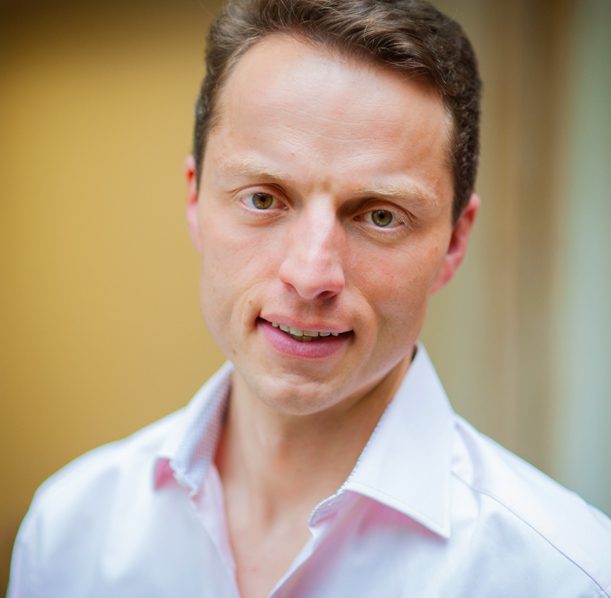
To get a clear idea of the situation, we measured the conversion rate of our members. 40% of them have responsibilities in the community. That’s not zero. It’s a large minority: journalists; columnists; elected representatives; employees of elected representatives; association leaders; elected student representatives, etc. In terms of proportion, this is very encouraging. Let’s take journalism as an example. We set up a school six years ago. We trained 200 students, 100 of whom actually became journalists. In 2004, we were placing one journalist a year. From 2014, three journalists a year. Today, there are 15 new journalists a year coming from our school.
As far as the obstacles to investment are concerned, all the reasons given are good ones for not jumping in. Let us be clear: you can’t make a fortune from commitment. You have to be prepared to take a few knocks. And it’s better to have a solid family to keep you going. When you’ve been to the top schools, you cultivate a sense of tranquillity and you don’t want to shake things up. Once you’ve invested everything in your studies, everything becomes increasingly risky and you’re afraid of falling back.
Many people’s reflex is to ‘play it safe.’ I take precautions. I get a good job. I put money aside. I have a good situation. I start my family and then ‘we’ll see’. And the problem is that we never see. You never see them. Particularly because in France we don’t have this mentality, which is very present in the United States, where you try out several things in the same life. In France, once you’re on a track, you stay there. You get used to the rhythm of life.
As far as pay is concerned, the big companies know how to keep talented people. With the famous bonuses that come every two or three years, as in strategy consultancies. Sometimes people come to us and say: “That’s it, I’m mature, I’ve put a bit aside, I’m going to do something that makes sense.” We ask them what their salary expectations are and then they disappear into thin air. They’ve gotten used to a standard of living that they’re not prepared to give up.
Nevertheless, things are moving. People with prestigious diplomas used to be shy, but the game is changing to the better. We can sense a change under the influence of two factors. The influence, no doubt, of the United States, where it’s much easier to say to yourself “I can do several jobs, I could bounce back in another way.” And the recent ripple effect of people who have succeeded by getting involved. I would cite the example of Charlotte d’Ornellas, a conservative journalist who is now very prominent. When she was younger, she was told: “Above all, if you want to succeed, go to Le Figaro, don’t make waves.” She chose a different path. And now she says what she has to say, while so many others in mainstream media still wait… and never say anything.
Do you feel that things are really moving? What signs of hope are there that our side is capable of turning things around? The IFP was founded in 2004. At the time, many of us thought that the Left had run out of steam. But it is renewing itself. What we didn’t see coming at the time was the tremendous resurgence of wokism and the fight for minorities, which has breathed new life into a Left that is nonetheless showing many signs of weakness…
In fact, today’s Left is increasingly radicalised and ideologised. But, at the same time, we still think that things are changing, and that things are possible today that weren’t possible then. I find some of the structural changes that have taken place very interesting and positive. The totally closed two-party system, with alternation between centre-left and centre-right, which dominated us for decades, has exploded in favour of a tripolarisation that better embodies the intellectual structuring of the French political arena.
Until then, power was confiscated by an establishment that didn’t think. We simply changed the technical team. All those who had an intellectual structure were rather on the fringes. Now things are being divided up differently.
The radical Left now defends minorities and makes pacts with Islam. It now has its own camp and is asserting it. Then there’s the globalist group, for whom France doesn’t exist, and who want to stay in charge, come what may. And then there’s a third camp, the national and patriotic bloc, which is in the process of structuring itself. When you look at the volatility of the electorate, which is now evident at every election, you might think that this is a bad thing, but it also means that things could turn out for the better. Victory is not out of reach. And that’s something we feel very strongly about. That’s why we’re seeing an explosion in the number of applicants for our courses. A lot of people are saying that we’re not far from making it.
Against this backdrop, many articles have highlighted the fact that this unity that is emerging on the Right was achieved in places like the IFP, which crystallised in the famous front page of the magazine L’Incorrect, where we see Thionnet, Rigaud, and Carayon together—the three presidents of the youth branches of the RN, Reconquête, and LR. They met at the same party organised by the IFP, and that’s what prompted Arthur de Watrigant, the editor-in-chief of L’Incorrect, to bring them together in the same interview.
Finally, I’d say that what is moving is the shift in public opinion. Even if this has not yet translated politically into a radical change of majority, ideological victories have now been won. For example, two-thirds of French people do not see immigration as an opportunity for France. This used to be debated on both the Left and the Right. The same goes for insecurity: it’s not a feeling, but a reality for a majority of French people.
The same goes for debt, taxation, and public spending. Apart from the extreme Left, no one considers that to be a good thing anymore. And what about schools? For the vast majority of French people, schools need to get back to the basics, which are the transmission of knowledge and respect for authority. All this has now been achieved.
So much for the signs of hope. Today, young people don’t come to the IFP just because ‘it’s nice’. Many of them say to themselves: We are at a turning point and we have to take responsibility.
Is the IFP just a Franco-French experiment? What can be transposed from your experience? Do you have opportunities to forge links with other training institutes abroad, particularly in Europe?
I think that the model set up by the IFP could be transposed to all countries. We’ve had a lot of visits from people from different countries who have heard about us, who have come to see us and try to understand where we’re going. I’m not sure that there are many similar structures elsewhere. But I think it could really develop everywhere. IFP focused on the French market, because there was a lot to do there.
Today, we are solidly structured, which will necessarily lead us to look a little more internationally. Even though we’ve always been interested in what’s being done abroad. The first programme we founded was the Bourse Tocqueville (Tocqueville Fellowship), to study the conservative movement in the United States. On a personal level, I have followed the activities of the Vanenburgh Society and the Centre for European Renewal.
We’re very happy to see everything that’s being created at an international level: Natcon, ARC, CPAC… and we’re going to try to be present there in the future.
The Institut de Formation Politique offers training sessions on three levels to young people wishing to commit themselves to serving the common good, combining practice and theory. The courses are organised over weekends and are supplemented during the week by regular evenings featuring inspirational guests from all areas of the French Right. The IFP has also launched a journalism school, the ILDJ (Institut Libre de Journalisme), and each year offers a fellowship to discover the American conservative movement, the Bourse Tocqueville.
Website : https://ifpfrance.org/

